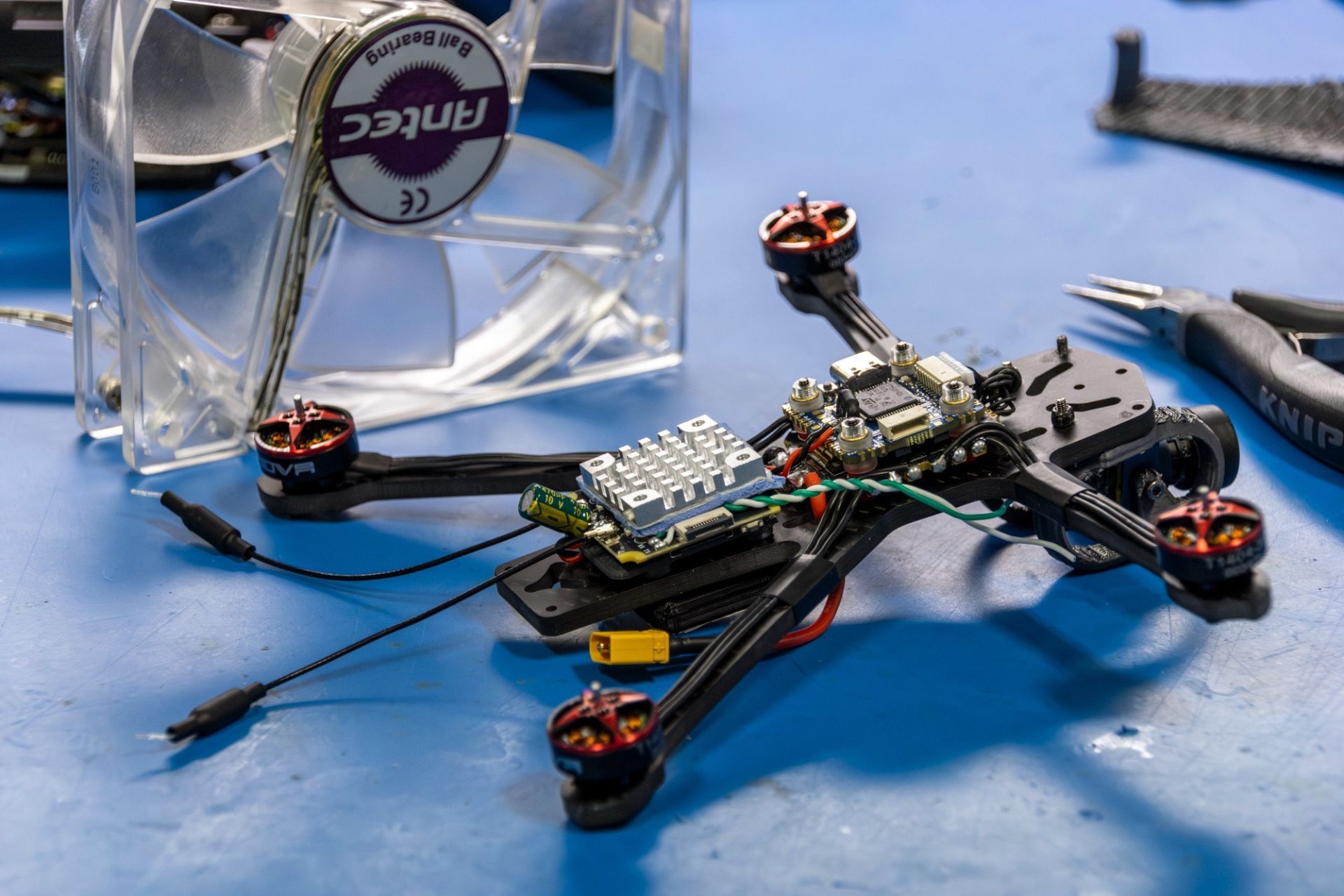Breaking News
Belgian Defense Innovates with Development of Miniature Drones.
At the end of July 2024, an innovative initiative emerged at the Peutie barracks: the development of miniature drones. In the facilities of the Centre for Competence in Flying Material and Communication and Information Systems (CCV&C), a team of Belgian military personnel spent a week developing these low-cost drones. The purpose of this initiative is to provide affordable drones to assess needs without incurring significant expenses.
Follow Army Recognition on Google News at this link

Military drones can easily cost thousands of euros, which represents a significant expense for testing their potential utility (Picture source: Belgium MoD)
"The idea is to have low-cost drones to determine our needs without spending too much," explains Major Koen Ceulemans, head of innovation at the Land Component. Military drones can easily cost thousands of euros, which represents a significant expense for testing their potential utility.
Currently, the Defense possesses a wide range of drones. Some, at the brigade level, are large and heavy, like the PUMA LE. Others, smaller but still costly, are used at the platoon level, such as the Parrot ANAFI. The ongoing project aims to evaluate the use of palm-sized drones at the section level, that is, groups of fewer than ten people.
Modernizing defense capabilities is crucial, especially in response to the rapid evolution of modern conflicts, as recently illustrated by the use of drones in Ukraine. The annual report of the General Intelligence and Security Service (SGRS) underscores the importance of understanding technology to define needs.
The objective is to test the idea of section-level drones to determine their relevance and usefulness in the field. At the same time, this initiative allows military personnel to develop new skills with portable drones. "We use open-source software and test different materials, both analog and digital, using carbon frames and 3D-printed parts,"
Major Ceulemans notes. However, the Defense does not plan to develop its own drone industry. "A second question would be whether an industry in Belgium could produce what we need once these requirements are defined," he adds.
The project currently benefits from the support of the Defense Innovation Program, which funds innovative military ideas to improve and modernize the capabilities of the armed forces. We look forward to the end of the year to examine this project more closely and share feedback on the use of these pocket-sized drones in the field.


























